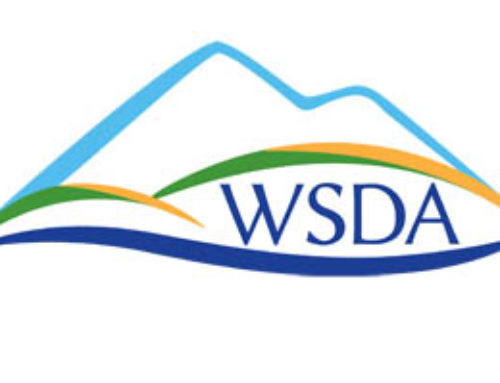National media headlines this year have been filled with reports of disrupted labor markets, with employers across many industries reporting shortages of available workers despite rapid wage inflation. In just over a year, concern has spread over the significant impact these conditions are having on the overall national economy. Those in labor-dependent agriculture, who have been facing these challenges for the past decade, can be forgiven for saying “welcome to our struggle.”
As unsettled as the broader macroeconomic conditions may be, they are not the sole reason for the wage and labor supply challenges we face in agriculture. Government actions, whether regulatory policies or litigation filed by outside advocates, are also contributing. As frustrating as such preventable damage may be, they also provide a more direct opportunity for us to identify, engage and influence them.

The Washington State Tree Fruit Association has been particularly engaged this year in debates surrounding Washington state’s survey process for determining prevailing wages for H-2A workers. This complex process involves an annual survey by the Employment Security Department (ESD) of employers of non-H-2A workers to determine wages during their week of “peak activity.”
These surveys can result in prevailing wage findings that, if adopted by the U.S. Department of Labor (USDOL) and if higher than the Adverse Effect Wage Rate set by a U.S. Department of Agriculture-administered survey, are mandatory for employers of H-2A workers.
Such required wage rates, when combined with requirements that H-2A employers hire any domestic worker who applies at the same wage rate as temporary foreign workers, has also made the H-2A wage rate the new wage floor for many non-H-2A employers in Washington state.
In early 2021, we learned that the initial results of the 2020 employer survey revealed that there was not enough data to set many prevailing wages that would be statistically valid under the guidelines set by USDOL. Not satisfied with this outcome, Columbia Legal Services filed a lawsuit against USDOL and ESD on behalf of a small labor union, Familias Unidas por la Justicia, seeking to set additional prevailing wages, despite the insufficiency of the supporting data. Similar requests had been rejected in the past, but this time they found a sympathetic judge.
On Jan. 24, USDOL published a revised prevailing wage rate for H-2A apple growers in Washington state. Unlike past prevailing wage rates that were broken out by variety or even by variety and orchard density, this was a combined rate of $28.26 per bin for all apple varieties. This was ostensibly based on the data from the 2020 survey data, but the result was guided by a sealed order from a federal judge, so the basis for the altered outcome was unknown.
This combined prevailing piece-rate wage does not reflect the varied levels of effort necessary to harvest different apple varieties. It is also economically unfeasible for some varieties, including our second largest, Red Delicious. Growers have already been forced to abandon some fruit as uneconomic to harvest, even with a smaller crop in 2022, and this situation would likely be much worse in 2023 if the apple harvest prevailing wage is left unchanged. Alternatively, growers could offer only hourly pay rates and accept the loss of productivity that results from removing this employee financial incentive, which would further exacerbate the existing labor shortage in agriculture.
WSTFA worked successfully with concerned legislators, led by Sen. Brad Hawkins, to persuade the agencies and the plaintiffs to agree to the unsealing of the court order that led to the altered prevailing wage rate. While this did not reveal the calculation method used, it did confirm that the changes were the result of negotiations between the union and the agencies. It is alarming to find that critical public policies affecting our industry are being set in private negotiations with a single special interest group. Fortunately, Washington’s Public Records Act provides a potent tool for bringing all activities related to policymaking into the light of day.
WSTFA submitted a request to ESD for the correspondence and records relating to this matter, including the agency’s negotiations with the union and its attorneys. Our request showed that the material was there, but what we initially received was heavily redacted to conceal the substance. Shockingly, the agency’s justification for these redactions was “attorney-client privilege.” This exemption only exists to allow a client to engage in confidential discussions with his or her own legal counsel, not with outside parties providing input on public policy development. WSTFA has therefore sued ESD for violations of the Public Records Act, and we are seeking to have these documents unredacted and fines assessed for what we consider a flagrant violation of our state’s open government laws.
Even as we seek to unwind the convoluted process that led to the combined apple harvest piece rate in 2022, the union and its attorneys have continued to seek to set wages by court action. Again dissatisfied with the results of the 2021 survey, they have petitioned the federal court to disregard it and have the combined prevailing wage rate set in January 2022 (based on the 2020 survey) extended for another year. WSTFA filed a brief with the court, refuting many of the inaccurate claims on which the previous decision had been made and outlining the harm to orchardists and workers that has resulted from it. We are optimistic that this will contribute to a better decision this time.
The prevailing wage survey process will become increasingly significant following a new H-2A program regulation issued by the Biden administration in October. Despite efforts by the Northwest Horticultural Council to enhance the statistical standards required for a prevailing wage survey to be valid, this rule will actually allow prevailing wages to be set based on survey results with much less data. Specifically, results can be adopted now with only five employers representing a total of 30 workers participating. This could result in a final survey with a margin of error as high as 18 percent, which would be more of a vague guess than a statistically valid finding.
We will be prioritizing these issues, including the related need to address the impacts of overtime in agriculture, at our annual Tree Fruit Day in Olympia on Jan. 24, 2023. We expect to see the Legislature return to on-campus meetings next year, which means we will have the opportunity to make our case to new and returning legislators face to face. I hope that you, your colleagues and employees will plan to come to Olympia to discuss how these policies are affecting your operation. Sign up now at: wstfa.org/tree-fruit-day.
by Jon DeVaney






Leave A Comment